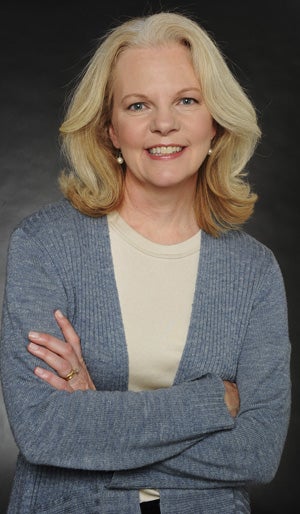Retreat and Renewal
Support for Parents of Autistic Children
“Although it was many years before the phrase materialized, THINKING BIG was precisely what my URI mentors modeled and taught me. I was encouraged to think big, think creatively, think of the possibilities, to be (responsibly!) fearless, and to be original. In large part because of these expectations and the encouragement I received as a student at URI, I have gone on to accomplish innovative work and scholarship….
“I had my choice of graduate schools,” Elaine recalled, “but URI was my first choice because of the strong focus on family systems theory and the caliber of the faculty.” Citing her professors’ commitment to maintaining clinical practices while fulfilling their teaching responsibilities, she expressed deep gratitude for the mentorship of the late Allan Berman, her “major professor,” and the late Alan Willoughby; her other psychology professors Joseph S. Rossi, M.A. ’80, Ph.D. ’85, Paul Richard Florin, and Wayne F. Velicer; psychology professors emeritus Lawrence C. Grebstein and Albert J. Lott; and Associate Professor Emeritus of Human Development and Family Studies J. Eugene Knott.
When Boston Children’s Hospital psychologist Elaine Meyer M.A. ’87, Ph.D. ’90 [see facing page], and her husband Barry Prizant, an autism expert and adjunct professor at Brown University, were hiking in a national park two decades ago, they recognized the healing properties of nature and thought parents of children with autism could benefit from a retreat where they could reflect, learn from each other, and ease the stresses of their lives.
Meyer knew just the place: URI’s W. Alton Jones Campus and its Whispering Pines Conference Center, located in the middle of a 2,300-acre forest in West Greenwich. This past winter marked the 18th year that Meyer and Prizant have organized the retreat with Community Autism Resources, a parent-run family support agency.
“We have to deal with autism 24/7 and 363 days a year, but here we can discuss it from afar without also having to live with it at the same time,” said Jim Belanger, who with his wife Deb has attended the two-day program for 15 years.
Added Deb, “I still say to this day that it helped preserve our marriage, because it helped us to have a common experience with common people and embrace the autism in a different way.”
Autism is a neurologically-based developmental disability, according to Prizant, diagnosed by documenting problems in social interaction, communication, and sensory issues. “A combination of these factors can lead to problematic behaviors or challenging behaviors, which may cause great stress for the family,” he said.
Meyer, associate professor of psychology at the Harvard Medical School, and co-founder and director of the Institute for Professionalism and Ethical Practice at Boston Children’s Hospital, said the success of the retreat is due to its focus on small group discussions, social support, and access to opportunities for growth and healing.
“People are here to learn more than just about autism and their children,” she said. “They’re exploring their own personhood and parenthood and their family relationships. We have a personal growth and self-care focus. If parents can take care of themselves and nurture themselves, they’ll be able to take care of their families better.”
This year’s agenda included such sessions as “New to It All,” “Adventures in Adolescence,” “Dads Together,” “The Always Evolving Family,” and “Expressive Arts and Children with ASD” (autism spectrum disorder).
“When people come to sessions like this, it changes the quality of their lives,” Meyer added. “They come away with ideas and a network of people who understand the situation.”
Henry Fiore ’80, M.A. ’85, and his wife Eileen (Phillips) ’94 have attended the retreat for four years. The experience led Henry to present workshops on autism to groups of schoolteachers and administrators, as well as at a national education conference. Principal of the St. Pius X School in Westerly, Henry said he initially didn’t want to attend the retreat, but now he plans to continue for as long as he can.
“I’ve learned a great deal from the parents whose children are now young adults, about what to expect when our son gets to be that age,” he said. “You sometimes can’t look ahead that far, so when you meet someone with a child that age, you realize there is hope.”
According to program participants, the W. Alton Jones Campus is the ideal setting. “When you drive down that long road into campus, you start to feel yourself in a better place,” said Community Autism Resources Executive Director Barbara Domingue, one of the retreat’s co-founders. “We’re nurtured there, people take care of us. Family meals can be a very stressful time, so to be at a place where you can sit and be well taken care of, that’s a big deal to everyone.”
The retreat organizers also offer an annual ASD symposium, which in addition to educating professionals and parents raises funds to enable any interested parent to attend the retreat, regardless of ability to pay.
“We’ve created a community here that helps everyone become the very best parent they can under the circumstances,” concluded Meyer. “It has been one of the greatest sources of professional pride for me, to create this environment and sustain it over 18 years.”
—Todd McLeish
 Home
Home Browse
Browse Close
Close Events
Events Maps
Maps Email
Email Brightspace
Brightspace eCampus
eCampus



